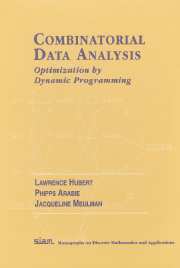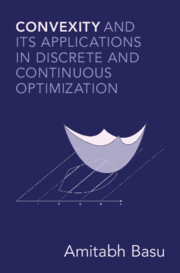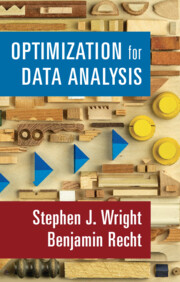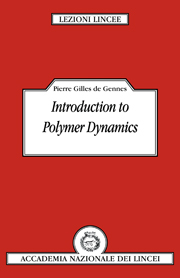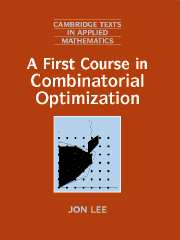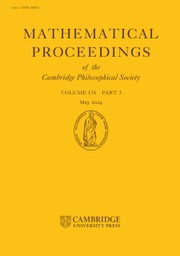Combinatorial Data Analysis
Combinatorial data analysis (CDA) refers to a wide class of methods for the study of relevant data sets in which the arrangement of a collection of objects is absolutely central. The focus of this monograph is on the identification of arrangements, which are then further restricted to where the combinatorial search is carried out by a recursive optimization process based on the general principles of dynamic programming (DP). The authors provide a comprehensive and self-contained review delineating a very general DP paradigm or schema that can serve two functions. First, the paradigm can be applied in various special forms to encompass all previously proposed applications suggested in the classification literature. Second, the paradigm can lead directly to many more novel uses. An appendix is included as a user's manual for a collection of programs available as freeware.
Product details
March 2001Hardback
9780898714784
175 pages
261 × 183 × 13 mm
0.553kg
This item is not supplied by Cambridge University Press in your region. Please contact Soc for Industrial null Mathematics for availability.
Table of Contents
- Preface
- 1. Introduction
- 2. General Dynamic Programming Paradigm
- 3. Cluster Analysis
- 4. Object Sequencing and Seriation
- 5. Heuristic Applications of the GDPP
- 6. Extensions and Generalizations
- Appendix: Available Programs
- Bibliography
- Author Index
- Subject Index.

